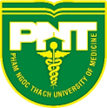
Introduction
Community health literacy plays a crucial role in determining the overall quality of life within a community. When individuals have the knowledge and skills to understand and navigate the healthcare system, they are better equipped to make informed decisions about their health and well-being. This, in turn, leads to improved health outcomes and a higher quality of life for the entire community.
The Importance of Health Literacy
Health literacy refers to an individual’s ability to obtain, process, and understand basic health information and services needed to make appropriate health decisions. It encompasses a range of skills, including reading, writing, numeracy, and critical thinking. When community members have low health literacy, they face challenges in accessing and utilizing healthcare services effectively.
Low health literacy has been linked to a variety of negative health outcomes, such as higher rates of hospitalization, increased healthcare costs, and poorer management of chronic conditions. It can also contribute to health disparities, as individuals with limited health literacy may struggle to advocate for themselves and access necessary healthcare resources.
The Impact on Community Quality of Life
Community quality of life refers to the overall well-being and satisfaction of individuals living in a particular community. It encompasses various factors, including physical and mental health, social connections, economic opportunities, and access to essential services. Community health literacy directly influences these factors and, consequently, the overall quality of life within a community.
When individuals possess adequate health literacy skills, they are more likely to engage in preventive health behaviors, such as getting regular check-ups, maintaining a healthy diet, and exercising regularly. This leads to lower rates of chronic diseases and improved overall health outcomes within the community.
Furthermore, individuals with higher health literacy are better equipped to navigate the healthcare system, understand their rights as patients, and make informed decisions about their healthcare. This empowers them to seek appropriate care when needed, leading to better healthcare utilization and improved health outcomes.
Improved community health literacy also has economic benefits. When individuals are knowledgeable about their health and can effectively manage their healthcare, healthcare costs can be reduced. This, in turn, frees up resources that can be invested in other areas of community development, such as education, infrastructure, and social services.
Promoting Community Health Literacy
Improving community health literacy requires a multi-faceted approach that involves various stakeholders, including healthcare providers, policymakers, educators, and community organizations. Some strategies to promote health literacy within a community include:
- Developing and disseminating health information in plain language, using clear and concise communication methods.
- Providing education and training programs to enhance health literacy skills among community members.
- Ensuring healthcare providers have the necessary skills to communicate effectively with patients of all health literacy levels.
- Collaborating with community organizations to create supportive environments that promote health literacy.
- Using technology and digital platforms to provide accessible and interactive health information.
Conclusion
Community health literacy is a critical component of community quality of life. By improving health literacy skills within a community, individuals are empowered to make informed decisions about their health, leading to improved health outcomes and overall well-being. Promoting community health literacy requires collaboration and a comprehensive approach, but the benefits are far-reaching and contribute to the overall health and vitality of the community.
